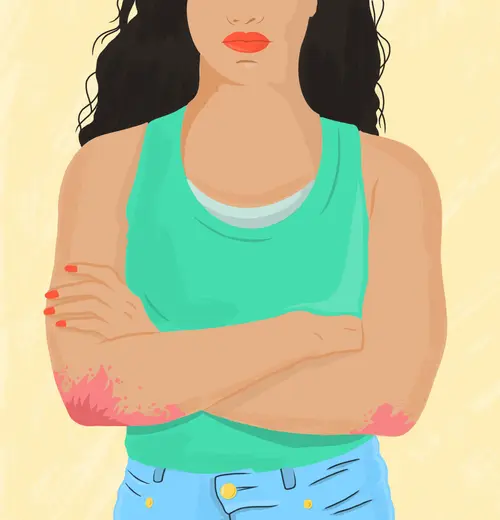Do you enjoy a drink from time to time? If you have psoriasis, your skin might benefit if you cut back on booze or even avoid it completely. Experts say that drinking, even in moderation, might:
- Set off your symptoms.
- Make your psoriasis medication less effective.
- Reduce the amount of time that you spend symptom-free.
Here’s a look at why that might be and what you can do about it.
Alcohol as a ‘Trigger’
Experts aren’t sure what the exact cause of psoriasis is. But they know that your genes and your body’s defenses (immune system) each play a role.
Things you do or things that happen to you or in the world around you can trigger psoriasis symptoms for the first time and prompt flare-ups. Many triggers can set off symptoms. Drinking alcohol is one of them.
Everybody’s different, though. What triggers your psoriasis might not set off someone else’s.
If you’ve noticed that your psoriasis flares up after you drink, talk to your dermatologist. Together, you can confirm whether it's a trigger.
What to Do
When you talk to your dermatologist, you can ask them if it’s safe for you to limit yourself to one drink a day if you’re a woman or two if you’re a man. If you have severe psoriasis, ask them if you’d benefit from quitting alcohol completely.
It’s important to talk with your dermatologist about your drinking habits. For starters, drinking could keep your psoriasis treatment from doing its job. What’s more, it can also raise your chances for liver problems while you’re on certain psoriasis drugs, like methotrexate.
Both heavy drinking and psoriasis are risk factors for fatty liver disease. When you cut back on (or cut out) alcohol, you lower that risk. If you’re a woman, drinking less can lower the odds that you go on to develop psoriatic arthritis, too.
Why Alcohol Might Trigger Symptoms
Psoriasis involves inflammation gone awry. Alcohol might make it worse. Normally, your immune system uses inflammation to help you fight off infections or recover from an injury. When you have psoriasis, your body goes into a state of inflammation by mistake, which may help fuel the skin condition.
Alcohol affects brain chemicals called neurotransmitters. Some research suggests that those chemical messengers might play a role in the inflammation process with psoriasis. That’s just one theory, though.
Even though many doctors and dermatology associations agree that alcohol seems to trigger psoriasis or make it worse, some scientists think we need more research to know for certain. They want to find out things like:
- How much alcohol it takes to trigger someone’s symptoms for the first time
- How much booze it takes to make psoriasis worse
- Whether the type of alcohol plays a role
- How much of an effect quitting drinking can have on psoriasis
One review of available research says it can be hard to draw firm conclusions about alcohol from older studies. The participants in those studies might’ve had more than one psoriasis trigger (like smoking). Also, past studies looked at different amounts of drinking, which makes it tricky to compare results.
That means it will take new research, specifically designed to answer these questions, to fully understand the link between psoriasis and booze. But, the stigmas tied to both psoriasis and alcohol make it hard to find enough people to study.
If you suspect that alcohol might prompt your skin symptoms, you may be on to something. Consider cutting back or talk to your doctor about how to manage your triggers.
Alcohol Abuse and New Psoriasis
Alcohol may not only be a possible trigger of psoriasis flares. Research shows that people who have psoriasis drink more alcohol than people without the condition.
One reason for this might be that getting diagnosed with a long-term skin disorder can take a psychological toll on you. Psoriasis is linked to low self-esteem and mental health conditions like anxiety and depression. Some people turn to alcohol to try to feel better, even though it might only make their skin worse.
If you find yourself using alcohol to manage your mood, ask your doctor, a counselor, or loved ones to help you quit as soon as possible. You can learn healthy ways to take charge of your emotions -- and once you stop drinking, you might have fewer psoriasis flare-ups as a result.

